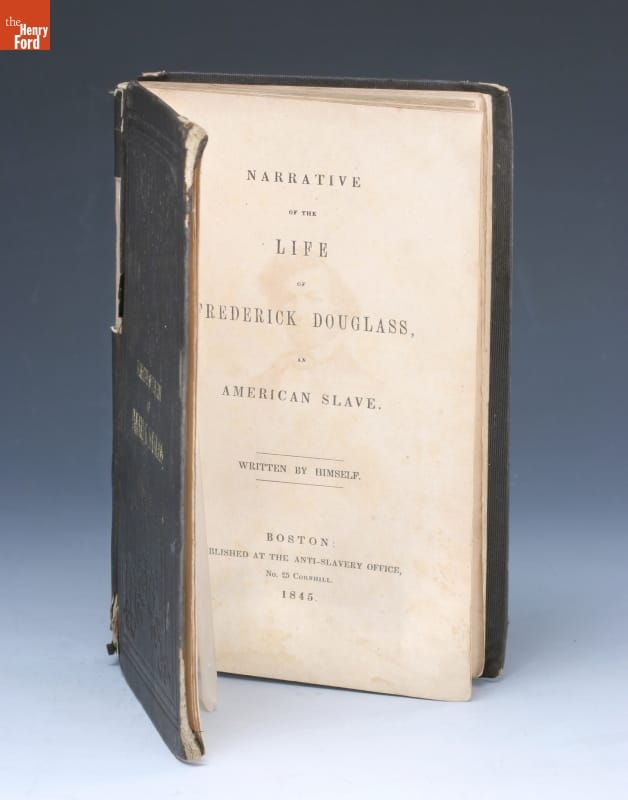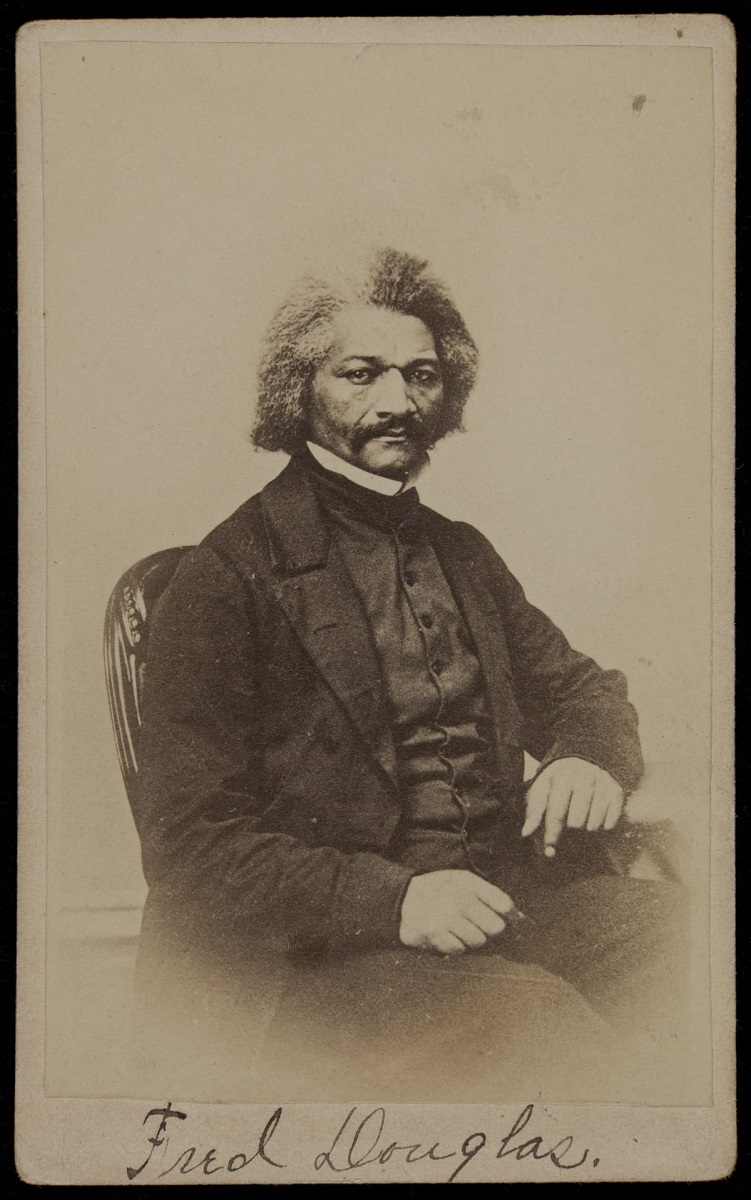Narrative of the Life of Frederick Douglass
| Written by | Katherine White |
|---|---|
| Published | 2/5/2021 |
Narrative of the Life of Frederick Douglass
| Written by | Katherine White |
|---|---|
| Published | 2/5/2021 |

"Narrative of the Life of Frederick Douglass," 1845 / THF8133
“I was born in Tuckahoe…in Talbot County, Maryland,” begins Frederick Douglass, in this, his first of three memoirs. In 1818, he was born into slavery as Frederick Augustus Washington Bailey, to Harriet Bailey, his enslaved mother, and an unknown white father—likely his master, Aaron Anthony. At the age of twenty, he escaped slavery and changed his name to Frederick Douglass. This first memoir, published in 1845, is foremost an account of Douglass’s early life—from the time of his birth until his daring escape.
But it is also a political text that humanized the enslaved and the cause of abolition. Douglass was a master storyteller—as well as a legendary orator—and this memoir is a compilation of the most moving moments of his young life, including the tragically few memories he has of his mother, the gruesome beatings he both endured and witnessed, the joys and challenges of learning to read, and, of course, his courageous escape from slavery. By 1847, it had already sold more than 11,000 copies and supported the young family he was building with his wife, Anna Murray Douglass. 
Portrait of Frederick Douglass, circa 1860 / THF210623
Douglass is best known for his long and celebrated career as an abolitionist orator, which began with an impromptu speech at an 1841 antislavery meeting. This would be the first of a lifetime of speeches. Douglass would go on to lecture about racial equality all over the world until his death in 1895. He also advised numerous sitting American presidents, including Abraham Lincoln, and was the first Black man to hold numerous high-ranking governmental posts.
Douglass was both a witness and a catalyst: he exposed the horrors of slavery and inequality, and then made it his life’s work to create a more just America.
This post was adapted from a stop on our forthcoming “Stories of Black Empowerment” tour of Henry Ford Museum of American Innovation in the THF Connect app, written by Katherine White, Associate Curator, Digital Content at The Henry Ford. To learn more about or download the THF Connect app, click here.
Keywords | |
|---|---|
Series | |
Themes |
